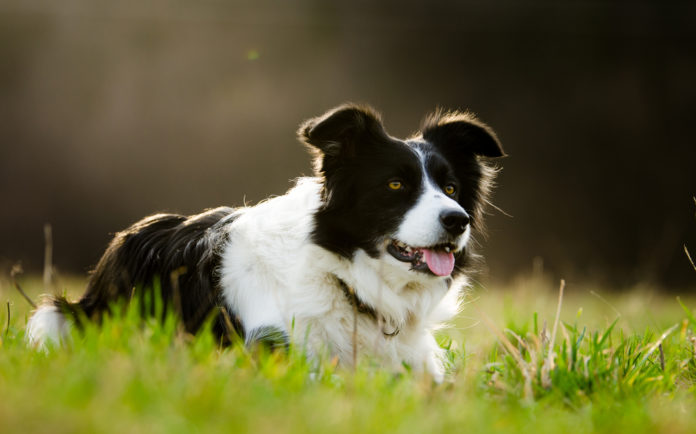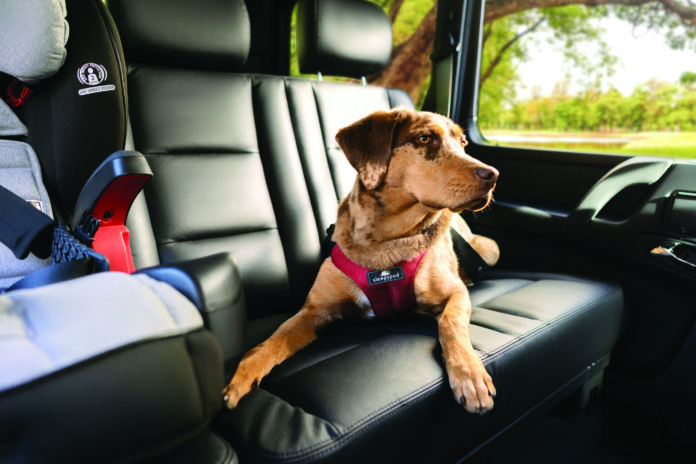Is a herding dog right for you?

Thinking of adopting or rescuing a herding breed or mix? While these dogs make great companions, keep these considerations in mind before signing the adoption papers.
Herding breeds like Australian shepherds and border collies are among the most popular canines in North America. They’re good-looking dogs with fun-loving spirits and plenty of energy, which makes them great companions for active families. That said, no dog comes without a few challenges! This article will explore some facts about herding dogs so you can decide if adopting a member of this breed is a good choice for you and your family.
Pros and cons of adopting a herding dog
Before we dive into a breakdown of some of the more popular breeds in the herding group, let’s take a look at some of the common characteristics shared by most of these dogs, and their mixes.
It’s also important to note that every dog, regardless of breed, is an individual. There are plenty of “outliers”, especially if you are looking at mixed breeds. Still, being aware of the pros and cons of dogs that are bred for herding will save you from the heartbreak of adopting a dog that turns out to have more needs than you can meet.
Highly intelligent and trainable
At first glance, these are extremely positive qualities. Who doesn’t want a smart dog that’s easy to train? After hundreds of years of selective breeding, most of the breeds in the herding group have above-average intelligence and respond extremely well to positive reinforcement-based training methods.
…most of the breeds in the herding group have above-average intelligence and respond extremely well to positive reinforcement-based training methods.
This is great for people looking for a dog who will quickly learn tricks, excel at competitive canine sports, or lend a hand with livestock as these breeds were intended to do. However, there is a downside to smart dogs: they tend to be high maintenance.
If you lack the time or knowledge to train your herding dog so he has a sense of purpose and a “job”, you may well end up having to rehome her after those same smarts turn her into a bored, frustrated, and often neurotic canine whose high needs for mental stimulation are not being met.
Sure, puzzle toys that help your dog think can put a dent in your herding pooch’s need for exercising her gray matter, but they’re no substitute for the kind of sustained mental challenge that working dogs were bred to crave.
Active, agile and athletic
Most of the dogs in this group are natural-born athletes built for long days of running, running, and more running to keep a herd of sheep in line. With a few exceptions, herding dogs have extremely high exercise needs that won’t be met with a few walks around the block.
A few hours of vigorous off-leash play (fetch, Frisbee, jogging, etc.) is required at least two or three times a week if you expect your herding dog to stay balanced and calm. For some, such as the border collie, even that won’t be enough in most cases.
If you live in an apartment or don’t have access to secure outdoor spaces, a herding dog may not be the best choice for you. On the other hand, if you want to take home some medals in a dog sport such as flyball or agility or adopt a companion to accompany you on your daily outdoor adventures, then go for it!
Loyal and strongly bonded to their people
Because they’re breed to work with people, dogs from the herding group can make extremely loyal and affectionate companions. However, some breeds, such as the German shepherd, have a tendency to be territorial and protective, which means that clear, solid leadership on your part is an important safety requirement.
That being said, if a strong bond is what you’re looking for, and you have the time to provide your dog with a great deal of companionship, then a dog from the herding group may be just what you’re looking for.
Most popular herding breeds
Drawing from the American Kennel Club’s list of the most popular dogs in 2018, the following breeds from the herding group are among the most sought after:
- German Shepherd
- Pembroke Welsh corgi
- Australian shepherd
- Shetland sheepdog
- Miniature American shepherd
- Border collie
Let’s take a quick look at each of these breeds to showcase the diversity within the herding group and help you find the purebred or mixed breed dog that might be the best fit for you.
German shepherd
Smart and loyal, sometimes to a fault, the German shepherd is the second most popular dog breed in the US. With wolf-like good looks, these powerful dogs are quite trainable and have been used in both police and military work beyond their original jobs as sheep herders and guarders.
German shepherds are known to become problem barkers if their mental and physical needs are not met. They need good leadership, and prior training experience with other dogs is highly recommended.
Pembroke Welsh corgi
One of the few herding dogs suitable for apartment living, the Pembroke Welsh corgi packs a lot of attitude into a tiny frame. Unlike other herders, their daily exercise needs can be met with a vigorous game of fetch down a long hallway, making these cute little dogs quite well-adjusted companions for urban dwellers.
Although originally bred with the tenacity and bravery to herd large animals like cattle, horses and sheep, today’s Pembroke Welsh corgis have been bred with a focus on their role as companion animals.
Australian shepherd
A favorite as both companion animals and ranching hands, “Aussies” are actually an American breed. Due to their gorgeous coloration and keen intelligence, these are one of the more popular herding dogs. Make no mistake, however — these intense dogs have high exercise and mental stimulation needs in order to make good family companions.
The Aussie has bit of a reputation for developing dog-on-dog aggression. Early socialization is key to making sure he grows up to trust other canines in his household.
Shetland sheepdog
These dogs look like a miniature version of the collie. They’re smart and excel at learning tricks. They have a tendency to bond extremely well with their people, but can become nervous and distrustful of other humans and dogs if not well socialized.
One of the most affectionate breeds in the herding group, the Sheltie is a great choice if you like to spend a lot of time with your dog, and are looking for a lovey-dovey type who will be there to comfort you during times of stress.
Miniature American shepherd
A smaller version of the Aussie, these compact dogs share many of their larger cousin’s characteristics. They are affectionate with their guardians, do particularly well with horses, and enjoy an active lifestyle. They have not lost their herding instincts and are somewhat famous for their tendency to herd small children when no livestock options are available.
Border collie
The genius of the dog world is the border collie. These dogs can make outstanding companions for people with extremely active lifestyles, those who live a country life, or who want to excel in the many arenas of competitive canine sports.
They also have a reputation for developing neurotic behaviors when their high needs for exercise and training are not met. These dogs need a job, even if that job is catching Frisbees at the dog park on a daily basis.
Adopting a dog is an incredibly rewarding experience – as long as you ensure you bring home the right one. Be aware of the traits of each breed you’re considering, spend some time with them before signing on the dotted line, and you’ll pave the way for a highly rewarding lifelong relationship!



